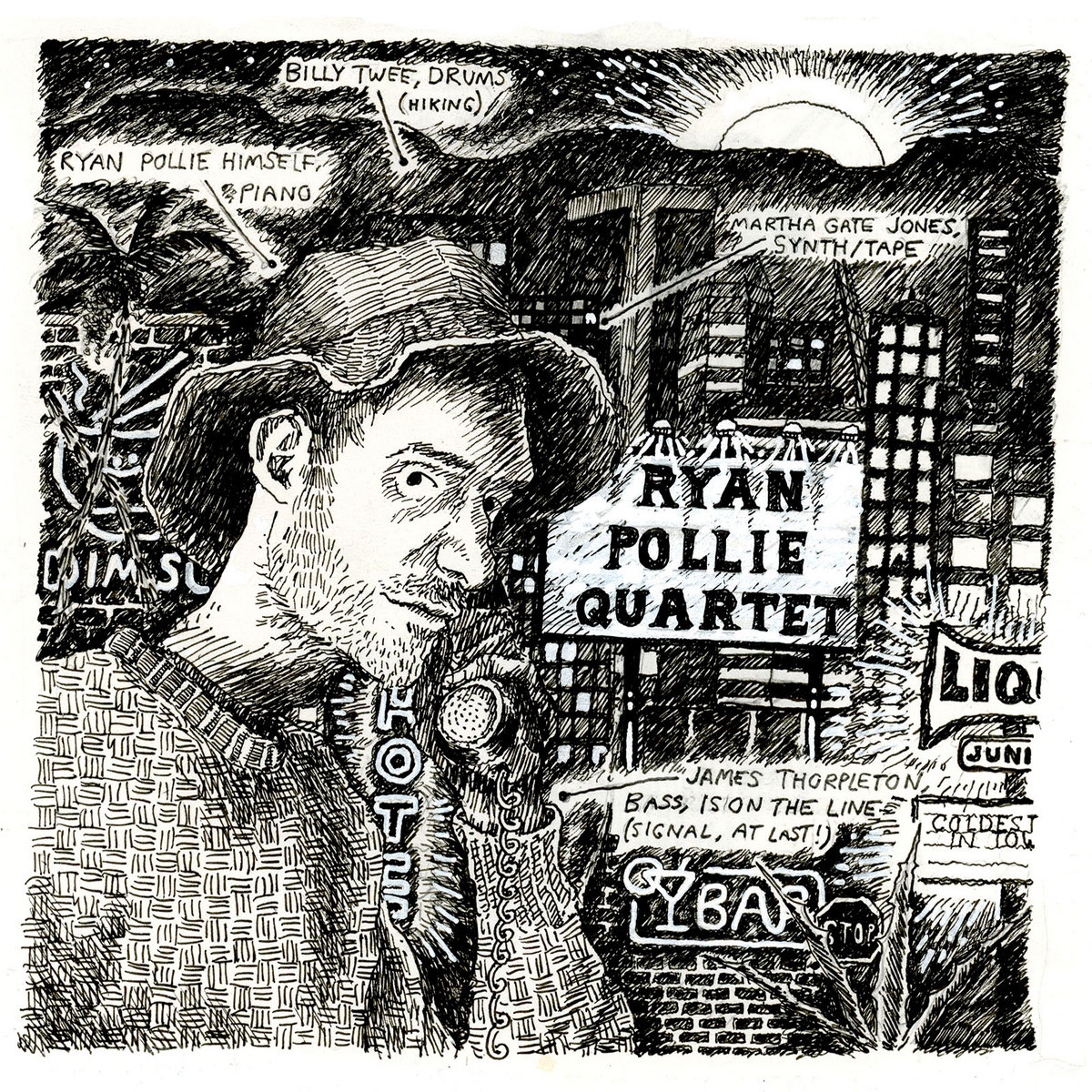Indie label Perpetual Doom gave us an early Christmas gift when they released the offbeat, experimental album Ryan Pollie Quartet on December 1st, which contains five tracks and nearly 30 minutes worth of jazzy, ambient weirdness.
The album comes from L.A.-based Ryan Pollie, an experimental artist who’s been busy exploring the soundscapes of our past via cassette loops. Pollie spent most of his career making earthy folk rock albums, but he’s recently been drawn to more ambient experimentation on records like The Fridge and The Fridge 2.
His new project, Ryan Pollie Quartet, aims to photograph the city streets of a bygone era. It contains beat poetry and be-bop jazz using early Sixties recording techniques and sound collages. Pollie was inspired by the free jazz of Cecil Taylor, Keith Jarrett, Lowell Davidson, Paul Bley, Peter Brotzmann, Borah Bergman, Alexander von Schlippernbach, and Sun Ra. He also took inspiration from modernist avant-garde composers like John Cage.

Ryan Pollie Quartet combines synthesizer and tape loops with upright bass, piano, and drums, taking a shape of its own. The record starts with “Conception,” and we’re instantly drawn into some bygone Netherworld jazz club. The piano and cymbal crashes signal free jazz, but the synthesizer loops throw us off and take us into something more extraterrestrial.
“Birth” is an interesting piece where the sound of children is prominent, something that may disturb your dog, as it did mine. It’s one of the weirder pieces and, while not exactly easy listening, fits in with the strange theme of the record. “Death” comes next, continuing the cyclical theme of the record, as the next two tracks are “Quantum Afterlife” and “Digital Consciousness Upload.”
It’s interesting how a record that uses early Sixties recording techniques and is intended to be a snapshot of a bygone era also touches on many futuristic topics. It reminds me of retro science fiction, which was much more optimistic than the dystopian sci-fi tales so popular nowadays.
“Quantum Afterlife” is the longest track at nearly ten minutes. The odd soundscape of the song is slightly unsettling but still pleasing to the ears. The percussion sounds like someone rumbling through an old attic while the piano plays softly in the background. The fact that there seems to be no rhyme or reason to the song and its lack of structure makes it properly free jazz, but it takes it even a step further in its disorganized chaos.
“Digital Consciousness Upload” is the last piece featuring wild saxophone playing similar to later era Coltrane. It ups the ante on the jazz influences of the album, a piece that teems with energy and feels like it’s about to go off the rails at any moment. With this last song, the futuristic life cycle is complete, and Pollie’s Quartet resides in the cyberpunk-esque digital world.
Ryan Pollie Quartet is a challenging listen, and fans of more conventional music may not appreciate it. But that seems to be the point. Pollie notes in his artist bio that he can’t stop experimenting, and while I haven’t dug into his more recent works, this new album shows that he’s thrown out the rulebook and gone for a free-flowing creative process.
I’m unsure how Pollie and his Quartet conceptualized and recorded this album, but I get the impression that most of it involved plenty of improvisation and letting the spirit guide them. The result is an album that is weird in the best way possible and fits squarely within Perpetual Doom’s oddball roster.
Check out Ryan Pollie Quartet on Bandcamp here.
Support Ryan Pollie by finding him on Bandcamp or social media (Instagram, Facebook, Twitter).
Sign up for email updates from The Third Eye below:








Leave a comment